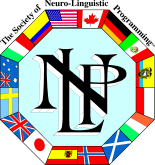
The NLP Meta Program Direction has two parts and is simple to remember. Language that is recognized as “Away From” and “Towards To”. To clarify this last statement, take a look at the following example: “I was suffering from a lot of pain, but now I sincerely become better.” In this sentence you are able to recognize a few things. “I was suffering” so the conclusion is that there is no or less pain now. This person, language technically seen, is moving away from pain. And, “Now I sincerely become better”. The conclusion you could draw here is that this person is moving towards a better health. So in working with Clients in Coaching for example, you are able to recognize the direction where this person is moving Away From and Towards to.
Remind yourself ... NLP Meta Programs do not come Alone
Please do note that the first part of the sentence is in the past as well, so the Meta Program Time needs to be investigated here as well. Just as a demonstration that the NLP Meta Programs do not come as a sole lonely program, they come as a mix. And for you, the NLP Practitioner the beautiful task to investigate them. It is helpful in determining this kind of language to detect the movement. In this article we zoom in on examples and exercises with the NLP Meta Program Direction.
Let's take a look at some more examples.
- This morning I was in the house, now I am in the office.
- Yesterday I did not know this specific part of knowledge. This morning I have learnt to recognize it.
- I was suffering from a lot of pain, but now I sincerely become better.
Let’s start with the first example. “I was in the House”, “Now I am in the office”. A lively example that this person moved away from home, towards and to the office The second one “Yesterday I did not know”, “Now I know”. An example of learning over time. Away from not knowing, moving towards knowledge. The third example we already went over in the introduction. So we leave that to your imagination.
The simple conclusion is that you start to listen to the movement of a persons statement. Where does the person start and where does the statement end? For the more advanced NLP Practitioners and NLP Master Practitioners under us, you will notice that there is more than one Meta Program running at the time. That is the reason why we invite you to read the main article about NLP Meta Programs as well!
Now some exercises.
Take a look on how you have learnt a specific skill. Travel back to the point where you did not have started this specific learning.
Now write down what you did not learn yet. For example “I could not multiply”. Then we are approaching the learning curve and you learning the theory and practical examples of learning to multiply.
So a conclusion of the NLP Meta Program Direction can be: “I could not multiply long time ago, it was difficult for me. Now I have learnt it it is fun and easy.” Do you see the movement of Direction in this sentence?
Write down Ten Examples of them and notice that we use the Direction Pattern a lot in our language. If you have questions, or if you want to validate your practicing, do send it to us. We are happy to help.
Last but not Least
Remember, to increase your efficiency as a NLP Practitioner, know your positive intention for the message you want to convey, build rapport and pay attention on what and how you use language. Leave people and business in a better place that where you found them, every day!
Mind Tools provides NLP Practitioner and NLP Master Practitioner Trainings and Certifications. We educate you according to the renowned, latest and highest standards set by the Society of NLP. We will train you thoroughly in all the corners of Neuro-Linguistic Programming and some extras we learned from Dr. Richard Bandler directly.
- Mind Tools Co., Ltd.
- NLP Meta Program Direction







